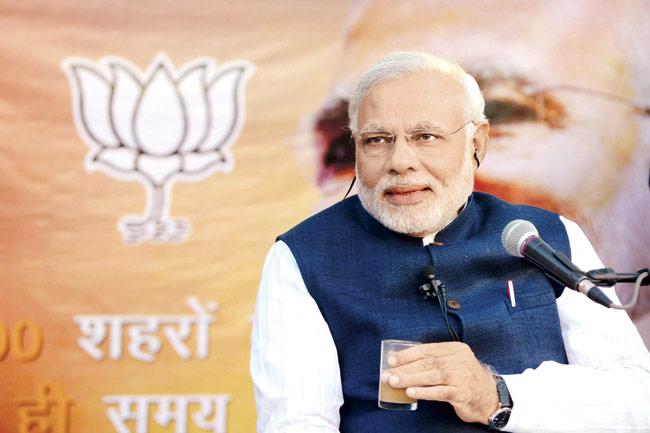As we draw closer to elections, politicians are going to talk about religion and its role in society and how they will defend the rights of every religious group of people

 As we draw closer to elections, politicians are going to talk about religion and its role in society and how they will defend the rights of every religious group of people. For people of religious minorities, this is significant as they look for an affirmation that their rights will be protected as determined by the Indian constitution.
As we draw closer to elections, politicians are going to talk about religion and its role in society and how they will defend the rights of every religious group of people. For people of religious minorities, this is significant as they look for an affirmation that their rights will be protected as determined by the Indian constitution.
Nearly 3 decades after independence, in 1976 ‘Secularism’ was inserted into the Constitution, and today manifestos of all parties affirm this belief but actions taken by those who represent those parties do not always reflect that belief.
ADVERTISEMENT

During a recent rally in Arunachal Pradesh, Narendra Modi raised the issue of illegal Bangladesh migration and its effect on demographics in the North East
The Samajwadi Party which was perceived as protector of the Muslim community in Uttar Pradesh went into a freeze mode when riots broke out in Muzaffarnagar in August 2013 in which Muslims were targeted. The Army had to be deployed for the first time in 20 years in the state.
TV debates on election issues centre on BJP and Congress spokespersons hurling accusations at each other of being architects of 1984 riots and the 2002 riots in Gujarat. Jammu and Kashmir has its own brand of religious identity politics. Narendra Modi who is the front runner for the post of Prime Minister in the country on Saturday raised the issue of illegal Bangladesh migration and its effect on demographics in North East India.
Campaigning in Arunachal Pradesh, Modi said all states in India must accept Hindu refugees from Bangladesh but then he also mentioned that illegal Bangladeshis should be sent back. Secularists were immediately up in arms claiming that Modi was indulging in double speak, while welcoming illegal Hindu immigrants, he wanted illegal Muslim immigrants to be sent back.
But is only Modi to blame for this case of double speak? Hasn’t the UPA government openly allowed Hindu refugees from Pakistan to settle in India? But then we also have Tibetan (Buddhists) refugees, Burmese (Muslims and Buddhists), Afghans (Sikhs and Muslims), Sri Lankans and Maldivian (Buddhists, Hindus, Muslims) who have settled in India fearing persecution in their lands for religious or political reasons.
And why do they come to India? Just to disappear in the one billion plus and remain safe in their anonymity? It goes beyond that. It is essentially because of the pluralism that Indians by and large practice. It is because of the secular nature of the Indian constitution. It is because our democracy embraces this pluralism and secularism despite periodic aberrations.
Historian S Irfan Habib says, “Secularism is not merely a slogan but the core for our very survival in India. In our multi-religious and multi-cultural context it becomes crucial even for our national security. This is the huge difference between India and the monochromatic Europe and even other parts of the world.”
In our neighbourhood, Pakistan is on the brink of being turned into a theocratic state because of the brute force of the Taliban. A country born out of a sense of religious alienation is now grappling with saving itself from self destruction in the name of religion. Pakistan’s pre-partition pluralistic society is almost wiped out as Shias, Ahamedis, Hindus are being butchered.
Bangladesh, the only country that came into being on the foundation of a language movement, fought against the imposition of Urdu by West Pakistan, embraced secularism against all odds is now bravely fighting pan-Islamic militant outfits’ call for Intifada in the Delta Nation.
Western Nations have formulas for South Asia which separate religion from state. In an idealistic sense, such a formula might mean end of wars or at least end of conflicts. But it is untenable. A sarva-dharma-sambhava kind of solution where secularism is the overarching principle would work better.
Security analyst Praveen Swami says, “Sometimes the west doesn’t understand the South Asian context and why this value of secularism is so important to social peace.
In complex multi-ethnic societies like ours where secularism isn’t defended it invariably leads to tension between various groups to a point where nations become dysfunctional, every nation in the region has been through this havoc.”
While it isn’t expected of political leaders to abandon their religious beliefs, they cannot and should not make it the made the basis for public policy. It is time for our leaders to wear their genuine secular credentials very proudly on their sleeves.
Not for votes, but to reaffirm our belief that our leaders are those who represent Indians of all faiths. Disengaging with religion is impossible for national politics and national security.
Smita Prakash is Editor, News at Asian News International. You can follow her on twitter @smitaprakash
 Subscribe today by clicking the link and stay updated with the latest news!" Click here!
Subscribe today by clicking the link and stay updated with the latest news!" Click here!







